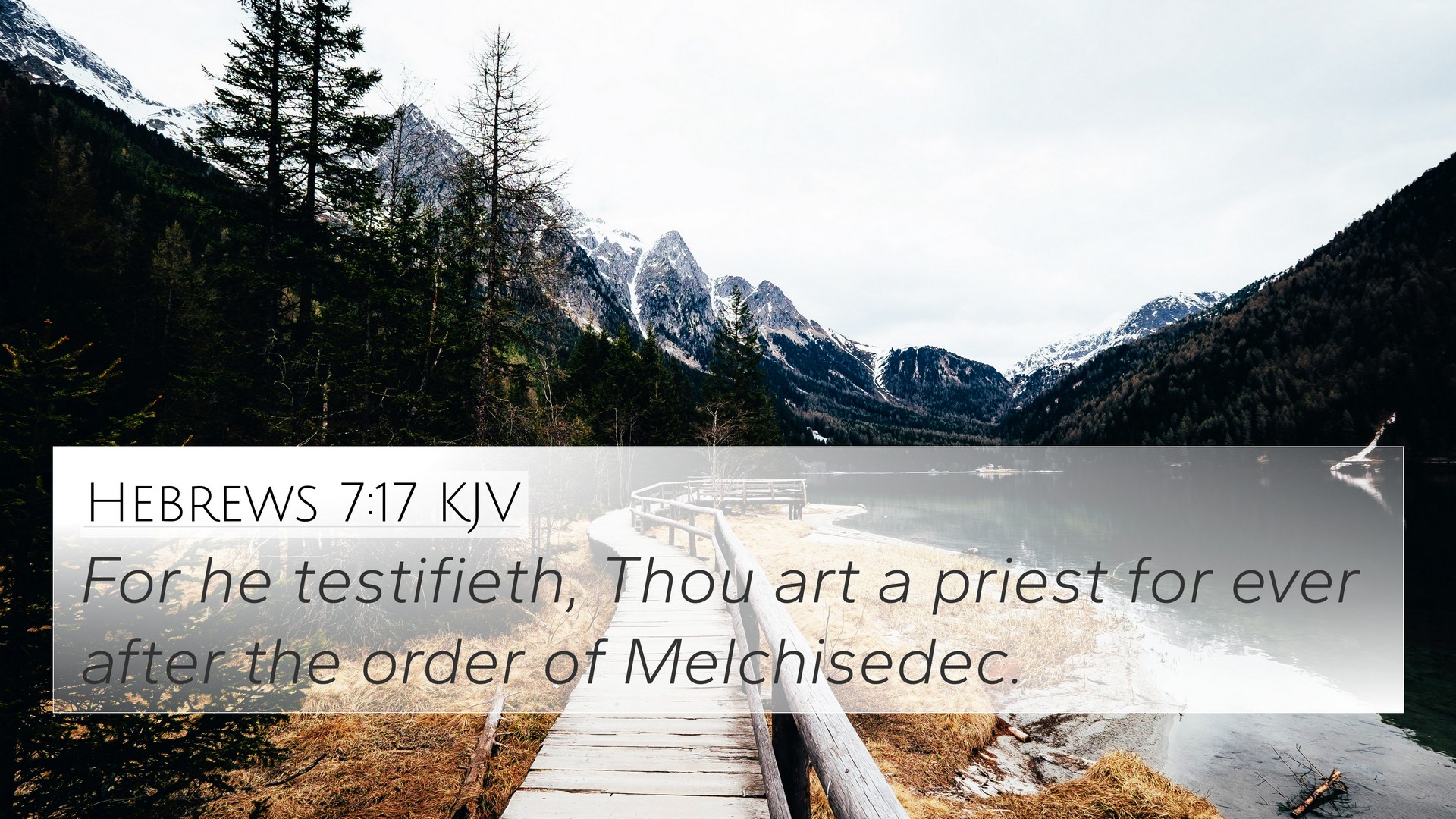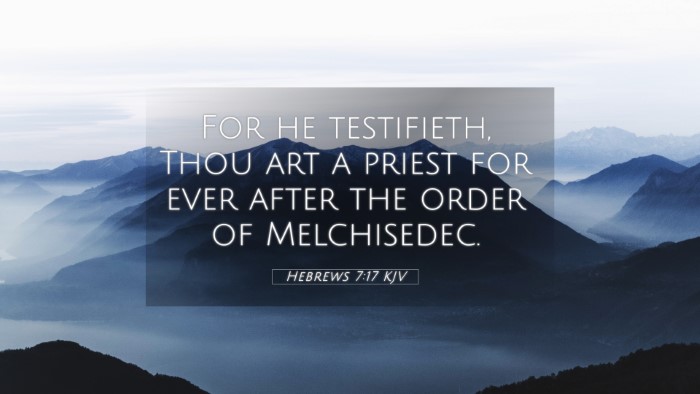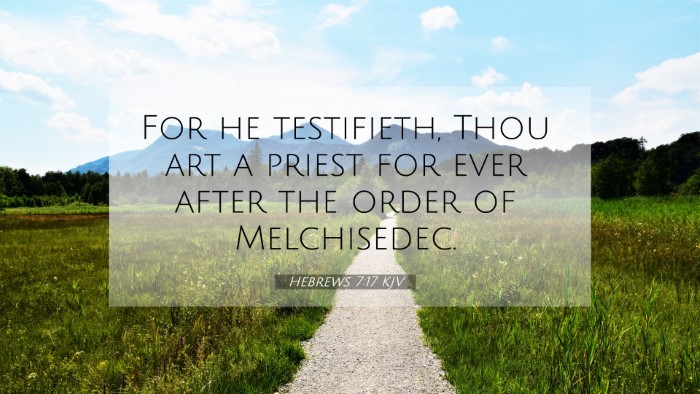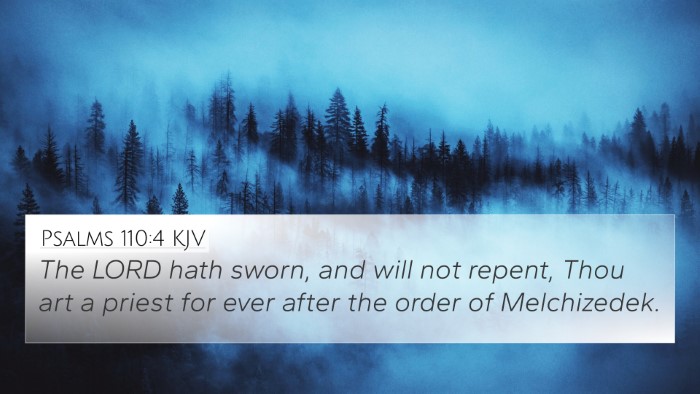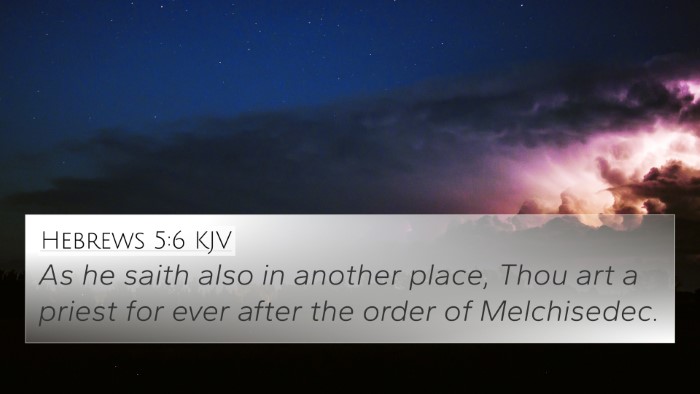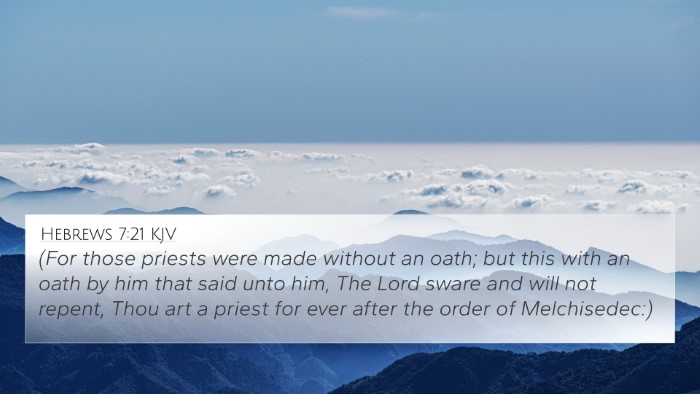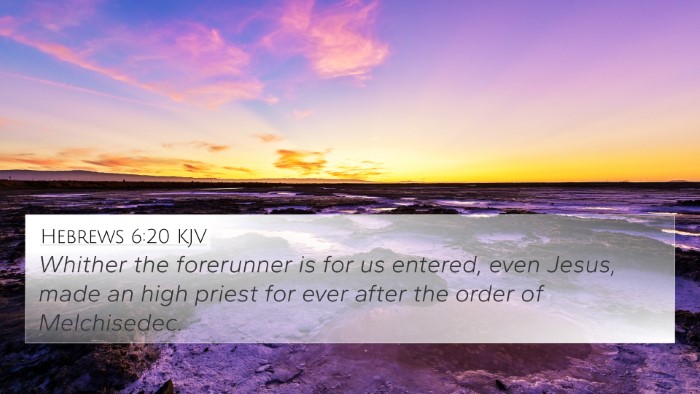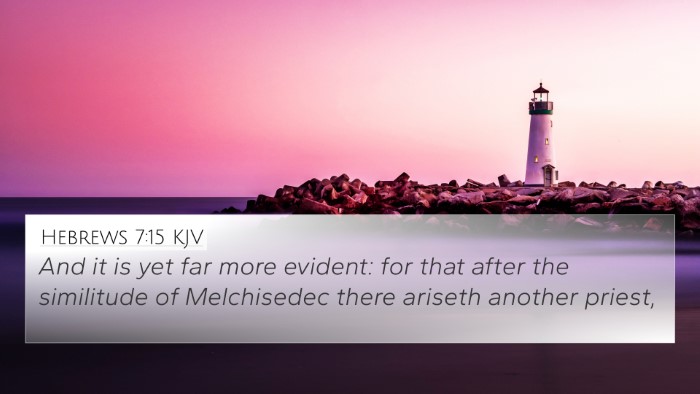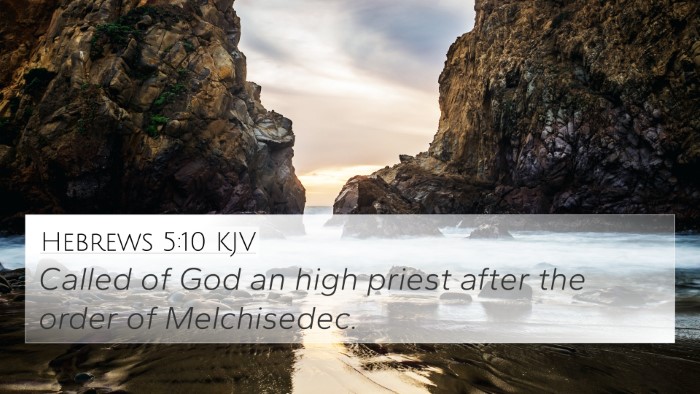Understanding Hebrews 7:17
Hebrews 7:17 states: "For he testifieth, Thou art a priest for ever after the order of Melchisedec."
This verse is pivotal in establishing the identity of Jesus Christ as a high priest. It draws a direct connection to the Old Testament figure Melchizedek, who is seen as a foreshadowing of Christ’s eternal priesthood.
Meaning and Interpretation
The author of Hebrews emphasizes that Jesus' priesthood is eternal and fundamentally different from the Levitical priesthood. Here are some key insights based on public domain commentaries:
- Matthew Henry: Henry emphasizes that Melchizedec was both a king and a priest, which symbolizes the dual role of Christ as sovereign and intercessor. He points out that Christ’s priesthood is divine and not limited by the law.
- Albert Barnes: Barnes notes that the mention of Melchizedec signifies a priesthood that predates and supersedes the Levitical system, highlighting the superiority of Jesus as the ultimate mediator between God and man.
- Adam Clarke: Clarke elaborates on the significance of the phrase “for ever,” indicating the everlasting nature of Christ's priesthood and contrasting it with the temporary roles of the Levitical priests.
Cross-References
This verse connects with several other scriptures that elucidate its themes. Here are 10 key biblical cross-references that highlight its meaning:
- Genesis 14:18-20: Details the encounter between Abraham and Melchizedek, establishing his significance as a priest.
- Psalm 110:4: Prophetic declaration that God has sworn and will not change His mind, “You are a priest forever after the order of Melchizedek.”
- Hebrews 5:6: Explicitly links Jesus to the order of Melchizedek, reinforcing the argument of His unique priesthood.
- Hebrews 5:10: Continues the theme of Jesus as a high priest, called by God, emphasizing His divine appointment.
- Hebrews 6:20: Highlights Jesus as a forerunner who enters the inner sanctuary, securing eternal redemption.
- Hebrews 8:1-2: Discusses Jesus as the high priest who ministers in the heavenly sanctuary, thus confirming His role.
- Romans 8:34: Illustrates Jesus' ongoing role as an intercessor, linking back to His eternal priesthood.
- 1 Peter 2:9: Calls believers a royal priesthood, indicating that in Christ, all believers share in this priestly office.
- Revelation 1:6: Declares that Christ has made us kings and priests unto God, emphasizing the priestly nature of Christ’s work.
- Revelation 5:10: Further reinforces the concept of believers being made priests and reigning with Christ, showing the eternal impact of His priesthood.
Thematic Connections
The verse underlines several critical themes present throughout the Bible:
- Dual Office of Christ: The combination of royalty and priesthood is a recurring theme that finds its roots in the Old Testament and is fulfilled in Christ.
- Nature of Priesthood: The distinction between the temporary Levitical priesthood and Christ’s eternal priesthood informs our understanding of divine mediation.
- Eternal Covenant: The references to Melchizedek signal a new covenant, depicting God’s plan of salvation that transcends the old law.
Tools and Resources for Cross-Referencing
To further explore these connections, consider utilizing the following Bible cross-referencing tools:
- Bible Concordance: Helps locate specific verses and see how they relate thematically.
- Bible Cross-Reference Guide: Provides insights on how specific verses are interconnected.
- Cumulative Bible Cross-Reference Materials: Offer comprehensive lists of verses that relate to particular themes or doctrines.
- Cross-Reference Bible Study Methods: Techniques to discover and analyze correlations across scripture.
- Comprehensive Bible Reference Resources: Various tools designed to deepen understanding of inter-Biblical dialogues.
Conclusion
Hebrews 7:17 fundamentally informs our understanding of Jesus Christ’s eternal priesthood and its implications for humanity. By cross-referencing this verse with the mentioned scriptures, believers can gain a richer insight into the themes of priesthood, covenant, and the duality of Christ’s role as both king and mediator. These connections illuminate how the New Testament fulfills and expands upon Old Testament revelations.
Frequently Asked Questions
- What verses are related to Hebrews 7:17? Refer to the cross-references provided for deeper insights.
- How can I find cross-references in the Bible? Utilize tools like a Bible concordance or cross-reference guide.
- What are similarities between Hebrews and Genesis regarding priesthood? Both books discuss the significance of Melchizedek.
